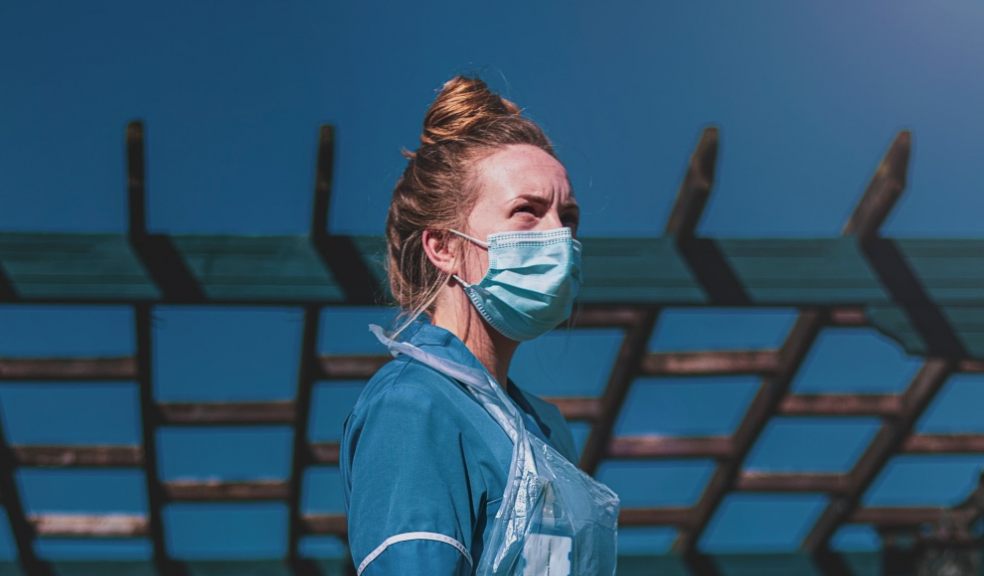
Sustainable PPE for health workers championed by Exeter professor
Sustainability experts from the University of Exeter Business School are working across the NHS in a drive to replace single-use PPE with more environmentally-friendly alternatives.
More than one billion single-use disposable masks were used by NHS workers last year, creating vast amounts of plastic waste and posing an ethical dilemma in which saving lives now has a harmful impact on the planet.
One recent study found that if every person in the UK used one single-use mask each day for a year it would create 66,000 tonnes of contaminated plastic waste – the equivalent weight of six Eiffel Towers.
Professor Peter Hopkinson, Director of the National Interdisciplinary Circular Economy Hub, which champions business models in which fewer resources are used and more waste materials reused, has been working with the Revolution-ZERO initiative, which produces zero-carbon, zero-waste targeted PPE, from face masks to gowns, at a lower cost than disposable counterparts.
His work has involved helping to design and develop a full ‘cradle-to-cradle’ life-cycle for their reusable PPE products.
Revolution-ZERO has been working with the NHS and specialists to run reusable PPE trials with hospitals, ambulance services and GP practices across the UK, which are now actively ramping up.
The PPE is made from the most appropriate material based on a variety of factors including environmental, social, economic impact and effectiveness, and manufactured using green energy to power operations (renewable sources from the sun, wind and water).
The reusable PPE, including masks, gowns, coveralls, aprons or caps, can be reprocessed 20-100 times.
And when the PPE reaches the end of its life-cycle it can be fully reused through either repurposing for other use cases or products or taken back through a full recycling process and manufactured into textiles.
Professor Hopkinson (pictured) says the Revolution-ZERO concept is commercially viable and scalable.
“With the PPE industry forecast to grow at an annual rate of 8%, zero carbon, zero waste targeted face masks, gowns and other forms of personal, protective equipment are needed to tackle the vast amounts of contaminated single-use plastic going to landfill.
“We are delighted to be involved with Revolution-ZERO on creating a full cradle-to-cradle lifecycle for reusable PPE. This includes integration into existing and new ways of reuse and laundry while providing a fully traceable solution that will integrate into any organisational workflow.”
Professor Hopkinson is due to talk about the initiative at the Global Research & Innovation in Plastics Sustainability conference this week, alongside Revolution-ZERO founder, Dr Tom Dawson.
Dr Dawson said: “The feedback provided by our colleagues and partners in national and international circular economy networks has been a vital part of Revolution-ZERO’s mission to improve the environmental, social and clinical impact of reusable PPE, leading us to a sustainable, circular vision of produce, use, recycle and regenerate.”




















